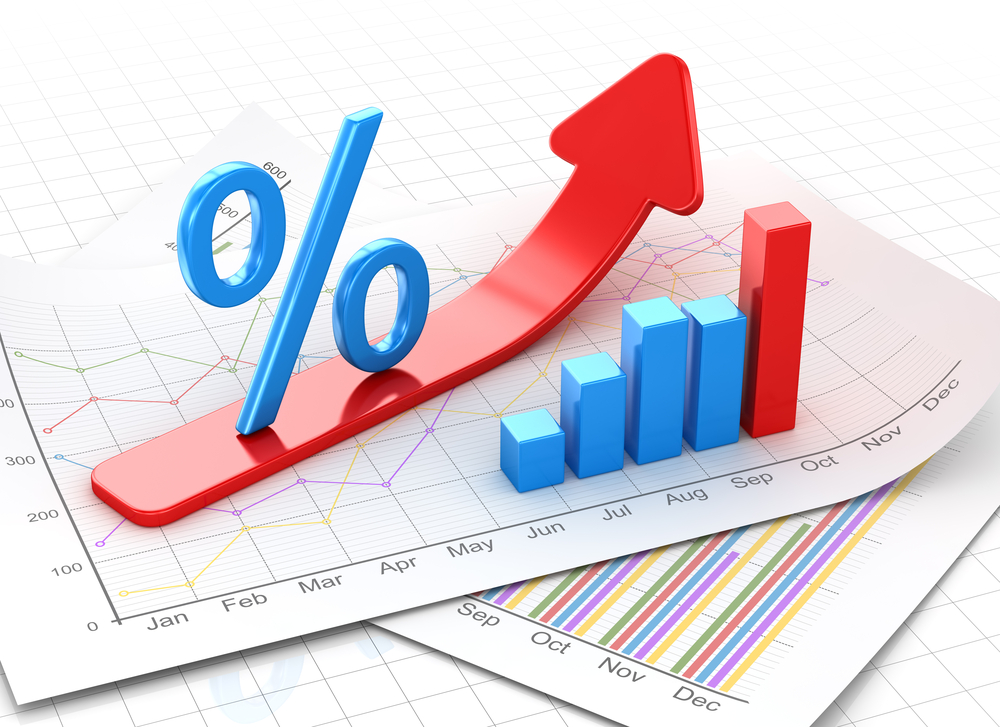MARKETS AND ECONOMY
JUST IN: CBN Raises Interest Rate To 16.5% To Stem Spiking Inflation
Published
3 years agoon

Rising inflation in the country has left the Monetary Policy Committee (MPC) of the Central Bank of Nigeria (CBN) with no choice than to increase the benchmark interest rate (MPR) by 100 basis points to 16.5%.
This is the highest level of interest rate since 2001 and the fourth consecutive increase in 2022.
Read Also:
This was disclosed by the Governor of CBN, Godwin Emefiele, while reading the communique of the last MPC meeting of the year on Tuesday, 22nd November 2022.
Business Metrics had reported that Nigeria’s headline inflation accelerated for the ninth consecutive months to 21.09 percent year-on-year in October from 20.77 per cent in September, highest since 2005.
During latest MPC meeting, the committee noted that the tightening will help restore investors’ confidence whilst curbing higher rate of inflation.
The Committee’s decision
- Increase MPR by 100 basis points to 16.5%
- The asymmetric corridor of +100/-700 basis points around the MPR was retained
- CRR was retained at 32.5%
- While the Liquidity Ratio was also kept at 30%
Recall that at its last meeting in September, the CBN raised the benchmark interest rate from 14 percent to 15.5 percent, marking the third consecutive increase in 2022.
It was also reported earlier that Nigeria’s money supply rose to its highest level at N50.5 trillion at the end of October 2022, an increase of N1.26 trillion from the previous month.
Nigeria’s inflation rate rose to 21.09% in October 2022 from 20.77% recorded in the previous month, an indication of a further rise in the cost of goods and services, despite the hawkish move by the CBN in the past six months.
Rate Hikes Aligns with Experts’ Expectations
Meanwhile, the decision of the apex bank to again jack up interest rate did not come as a surprise as economic analysts in the country had envisaged the development following the last inflation report.
For instance, financial analysts at Cordros Capital said the persistent hawkish rendition among global central banks will be a major theme of discussion at the meeting, given that tighter global financing conditions induce investors to ‘retreat’ and eschew opportunities outside the advanced economies.
“Consequently, we think the Committee will be concerned about the negative impact of capital outflows on the external sector, increasing the urge to introduce measures to send positive signals that it is intentional about bringing down inflation.
“On a balance of factors, we expect the MPC to raise the MPR further by 100bps, given the continued hawkish rendition of global central banks amid a comfortable level of domestic growth and persistent inflationary pressures,” they had envisaged.
Similarly, investment analysts at Cowry Asset Management said in a note last week shared similar position that the apex bank was a tight corner with raising of interest rate as the only option at its disposal, although they expected modest increase of 25 basis points.
They said: “For Cowry Research, our headline inflation outlook remains elevated when we take into account the recent flooding which affected many food-producing states; the rise in energy costs which is reflective of the increases in fuel prices (diesel and kerosene) coupled with the depreciating Naira and rising airfare prices.
“As such, for the Monetary Policy Committee (MPC), there is little room for another rate tweak at its next meeting on Monday and Tuesday after an already 400bps rate hike this year in the bid to tame inflationary pressure, following this marginal acceleration. Thus, we expect a moderate rate hike at the next MPC meeting by around 25 basis points. That being said, we project headline inflation to hit 21.5% in November.”
Share this:
- Click to share on X (Opens in new window) X
- Click to share on Facebook (Opens in new window) Facebook
- Click to share on WhatsApp (Opens in new window) WhatsApp
- Click to share on Pocket (Opens in new window) Pocket
- Click to share on Telegram (Opens in new window) Telegram
- Click to email a link to a friend (Opens in new window) Email
- Click to share on LinkedIn (Opens in new window) LinkedIn
You may like


Nigerian Banks Set New Target to Respond to Frauds


NCC, CBN Introduce 30-Second Refund Rule for Failed Airtime and Data Purchases


Nigeria’s Inflation Moderates to 14.45% in November


Banks’ N1.96Trn Black Hole: Who Took the Loans, Who Defaulted, and Why the Real Economy Suffers


How Policy Missteps Weigh Down Nigeria’s Fragile Banking Giants


Nigeria at 65: A Nation Still Waiting for a Banking Revolution












